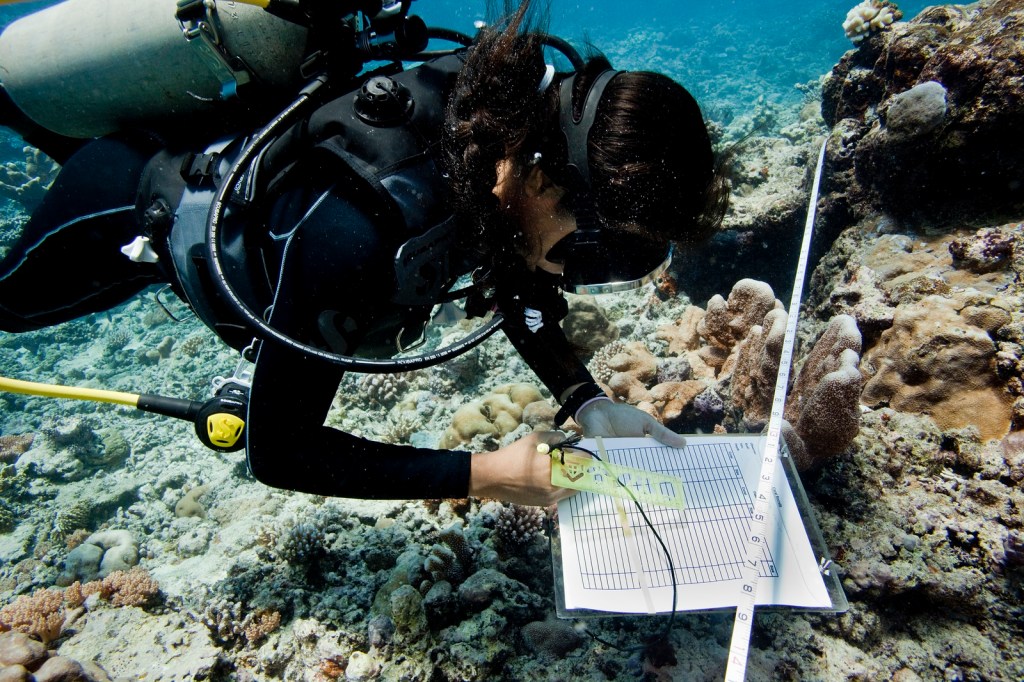By Cara Byington, Science Communications Specialist
Scientists and reef managers agree: the key to successful reef management is resilience.
While that has been recognized for more than a decade, the challenge is understanding how to manage for resilience. Until now.
A new paper in Global Change Biology “fills a critical resilience-management gap,” says Conservancy climate scientist Elizabeth McLeod and one of the authors of the paper, “by presenting a clear framework and a set of guidelines for how managers can enhance resilience through prioritizing specific place-based management interventions.”
First, a definition: Resilient reefs are those that maintain their fundamental biological processes of recruitment, reproduction, regrowth and repair. A resilient reef is better able to recover from stress events like bleaching and storms.
Think of it like an immune system. A person with a healthy immune system can recover quickly from a cold or minor infection, whereas such a condition might be life threatening to someone with a suppressed immune system. A resilient reef is likewise better able to recover from stressors.
The authors show how the framework can be applied to Caribbean and Indo-Pacific reefs and discuss how the prioritization of management strategies to support resilience changes under different ecological and sociopolitical conditions. They highlight the need to address key stressors facing coral reefs: pollution, sedimentation, overfishing, ocean warming and acidification.
By shifting from a piecemeal strategy that focuses primarily on abating stress from individual (often acute) events to one that prioritizes abating chronic stressors, reef managers can enhance overall reef resilience.
The paper by world leaders in coral reef ecology and climate science, including several authors from The Nature Conservancy, provides a framework for managing for resilience.
“This Adaptive Resilience-Based Management Framework,” says McLeod, “also enables managers to identify knowledge gaps that are limiting their ability to implement the most effective strategies for reducing system vulnerability. Through application, testing and further development, we believe that this framework will support smarter management actions that in turn will support the resilience of coral reefs and the communities that depend upon them in a rapidly changing world.”
Opinions expressed on Cool Green Science and in any corresponding comments are the personal opinions of the original authors and do not necessarily reflect the views of the Nature Conservancy.




Join the Discussion